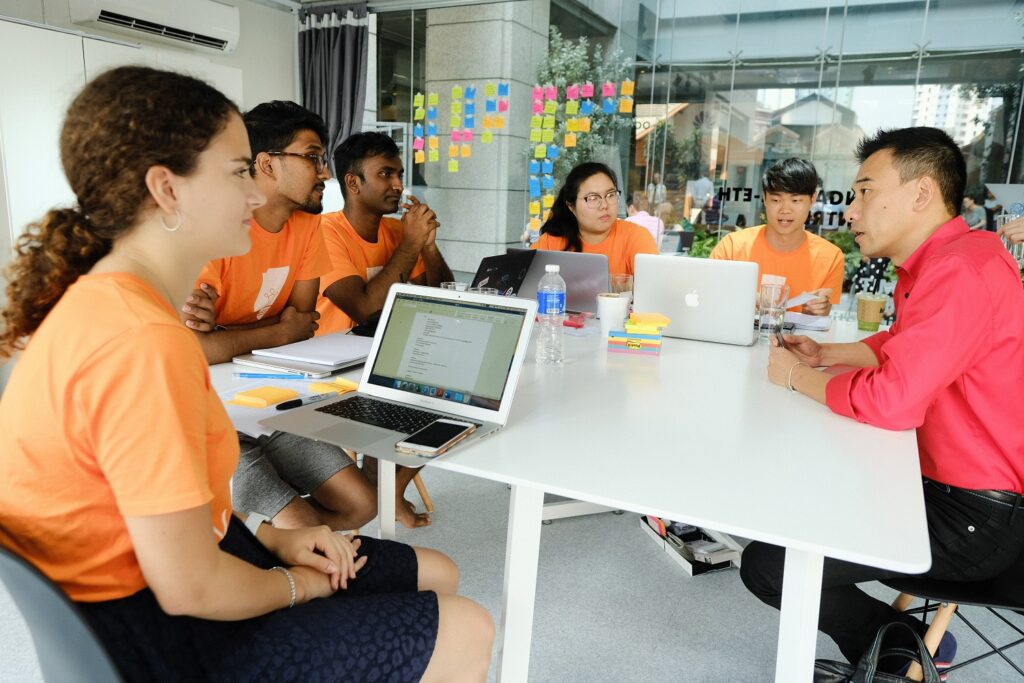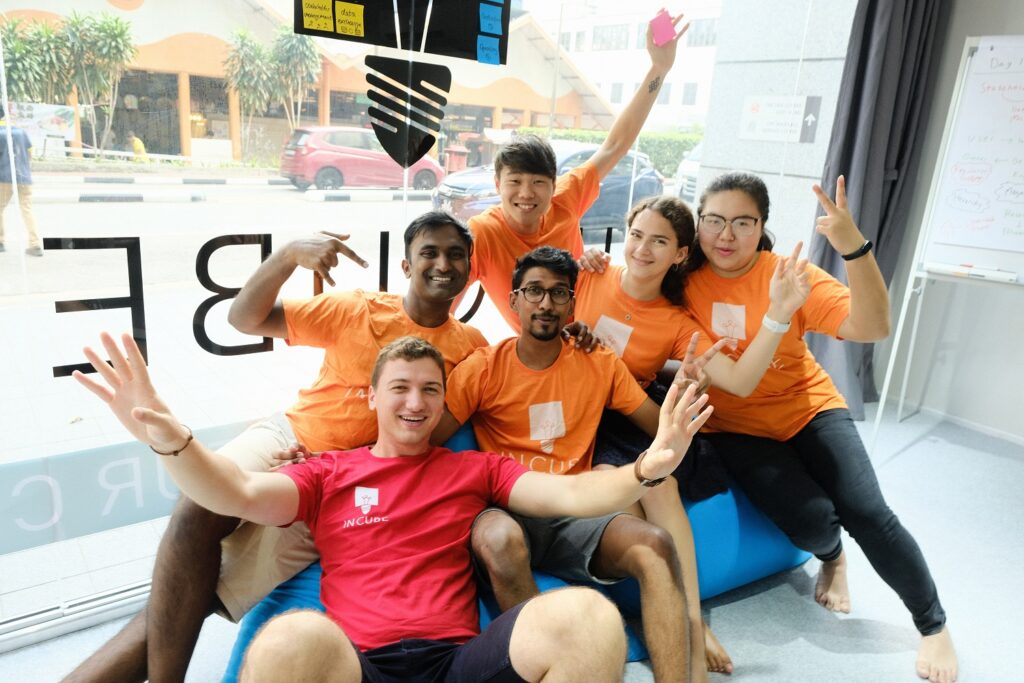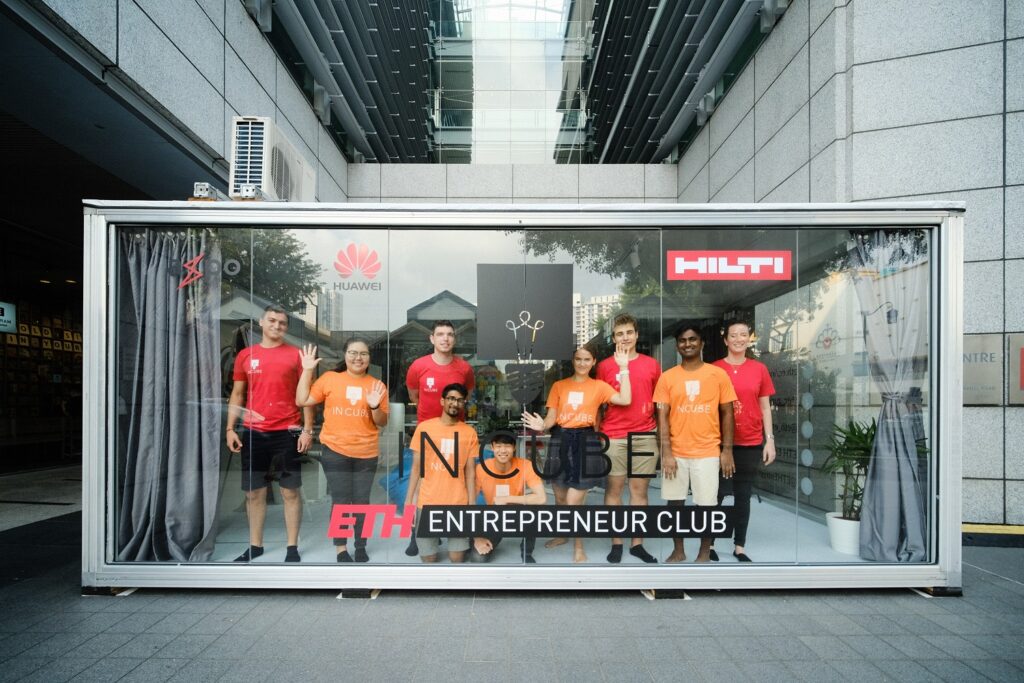“Take InCube to Singapore?! What a crazy idea! And is it even worth it?” Those were our first thoughts about taking InCube to the other side of the globe. But after last year’s success on the MIT campus in Boston , InCube leader Arno and his core team were determined to take the InCube Challenge even further this year. Charlotte Nicod, Matteo Guscetti and Sebastian Pinegger of the Singapore team, together with the rest of the InCube team spent hours after a full day of work endlessly writing emails, tracking down a sponsor for Singapore, wading through exhausting bureaucracy and getting everything ready for the venture. And their efforts paid off, for there we were – ready to embark on a 13-hour flight to the bustling island nation at the tip of the Golden Peninsula.
Behind glass in downtown Singapore
by Christos Gountis, 05.12.2019
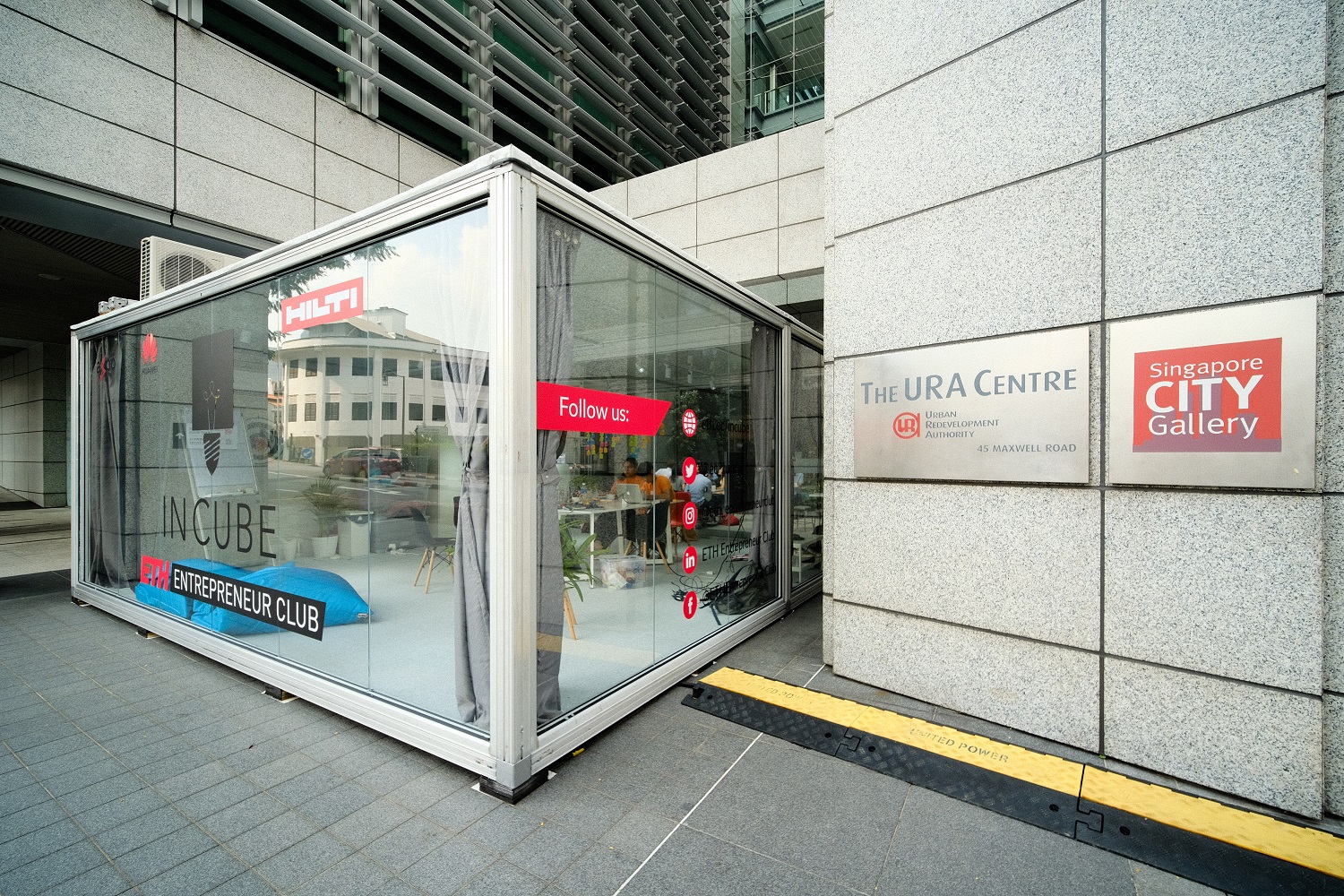
The cube outside the URA centre in downtown Singapore (photo credit: Thomas Lim/ETH Zurich)
SG “cubees” Aravind, Jonathan, Jonita, Victoria and Vishnu had just spent three days in the al-pine region of Crans Montana getting to grips with key Design Thinking tools by entrepreneurial experts. Meanwhile the cube facilitators, including me, were coached on how to guide participants through the design thinking process and foster their creativity in the cube.
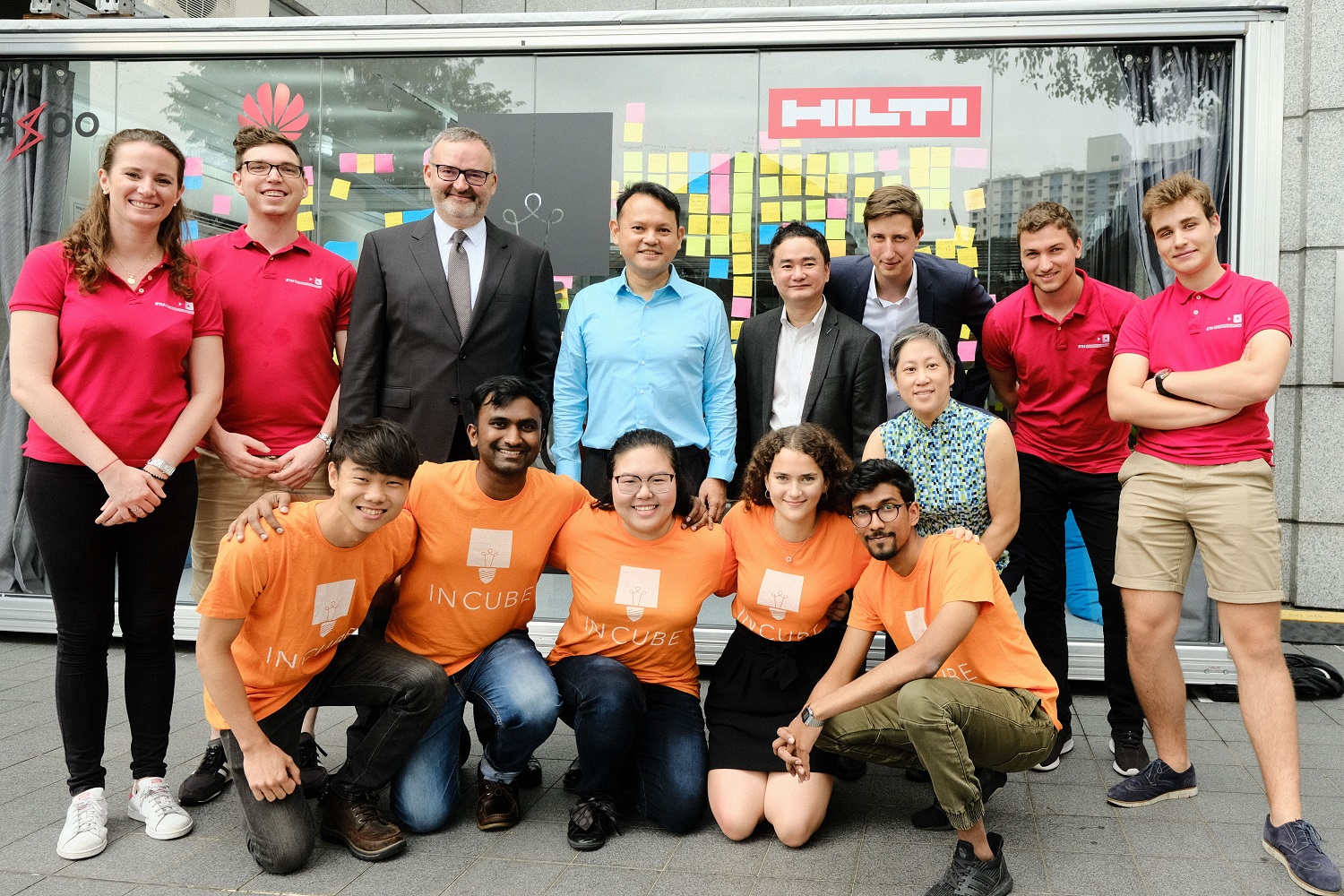
The InCube team with the Singapore Minister for National Development and Manpower, the Swiss Ambassador and representatives from our sponsor HILTI (photo credit: Thomas Lim/ETH Zurich)
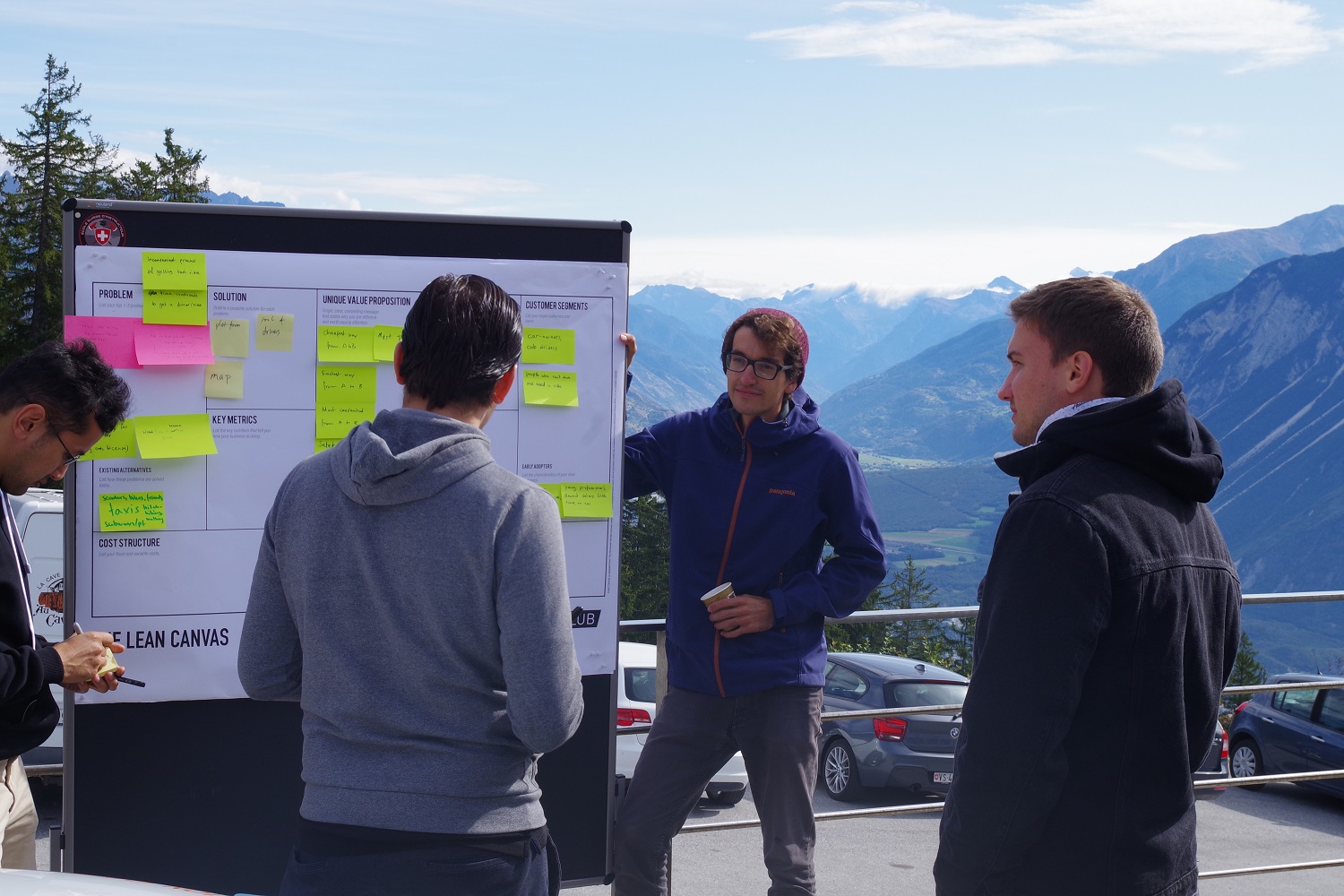
Training for InCube facilitators in Crans Montana (photo credit: Entrepreneur Club/ETH Zurich)
And now, inspired by our get-together with students from ETH, MIT, EPFL and HSG, and refreshed by the Swiss mountain breeze, we were ready to spend 96 hours in a glass cube in front of the Urban Redevelopment Authority building at the heart of Singapore. The SG cubees – a diverse team of dynamic personalities with very different backgrounds – were all determined to join forces and have fun while solving the challenge from the cube’s sponsor, HILTI: how to build smart construction sites for a smart nation.
In a packed first day, construction experts explained the pain points of their building projects and outlined what they needed. Although exhausted, the cubees then mustered the energy to tackle the most important session: team building. Watching them communicate so honestly and openly from the first moment, I felt confident that the basis for a flourishing team-collaboration and promising outcome was now set.
Over the next 48 hours, the cubees worked relentlessly through input from experts to identify the crux of their problems and untangle the “gordian knot” of the construction industry – namely managing all the given resources effectively. Eventually, after a long brainstorming session, intensive discussion and exhaustive problem and solution refinement, they had it: a 3D model rep-licating a construction site which would enable contractors to allocate labour resources optimally. They called it OmniSight, the strategy game for construction sites.
In only six hours, they had come up with a convincing business plan, drafted a solid storyline and prepared a sound and impressive pitch. And their reward? Watching the final event at ETH Zurich on livestream at 1 a.m., listening to all the amazing pitches … and seeing their name on the winner’s board!
How heart-warming it was to see them wreathed in smiles and dancing for joy, in a glass cube in the middle of the night in the streets of Singapore. As their facilitator, I had spent most of the time inside the cube with the participants; this now was further proof of how much a group of individuals can achieve when they put aside their ego and personal aspirations, and devote themselves to a common goal in the toughest circumstances. So, our verdict on this amazing InCube journey? “Hell, yeah it was worth it!”
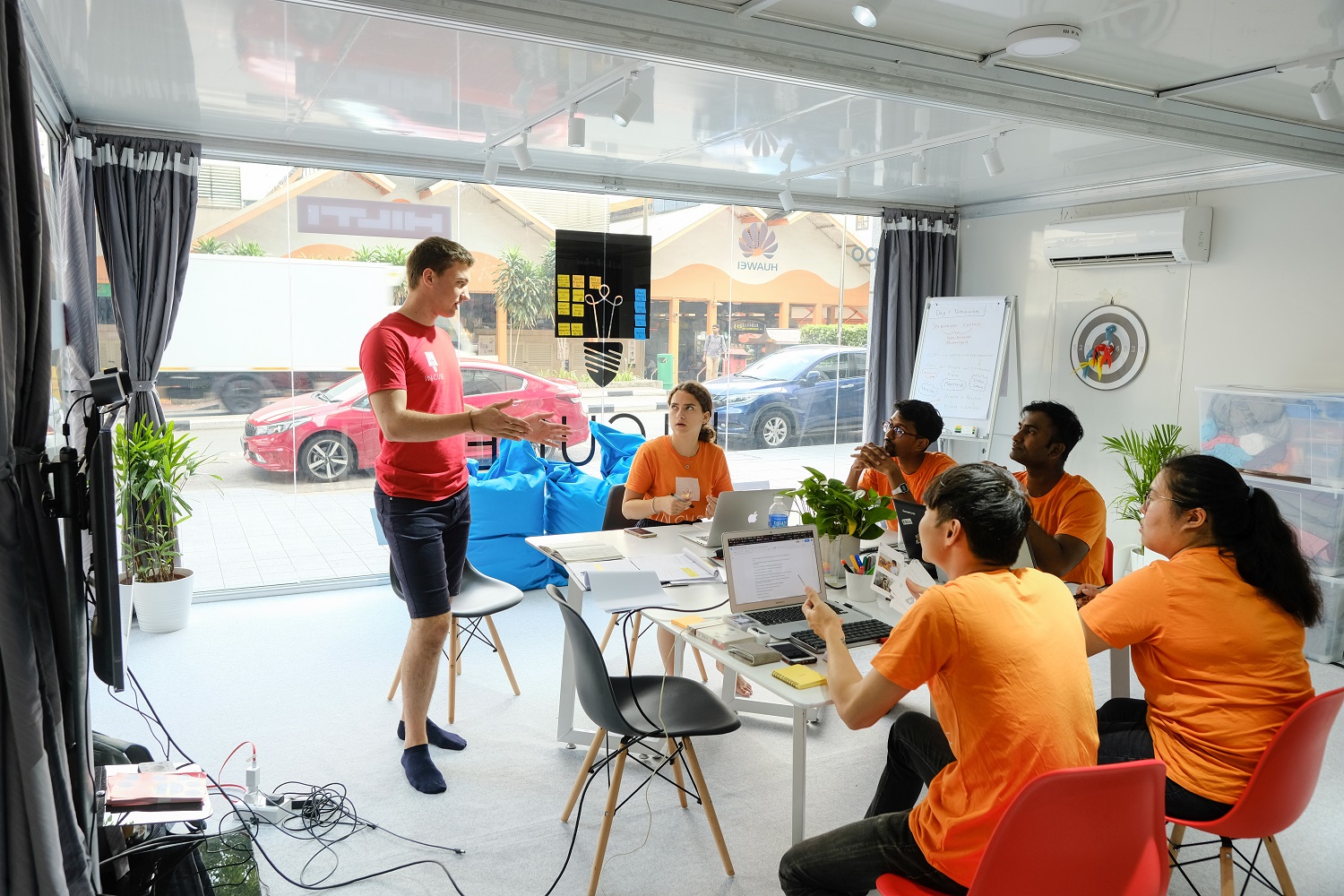
Facilitator Christos gives instructions to the cubees (photo credit: Thomas Lim/ETH Zurich)
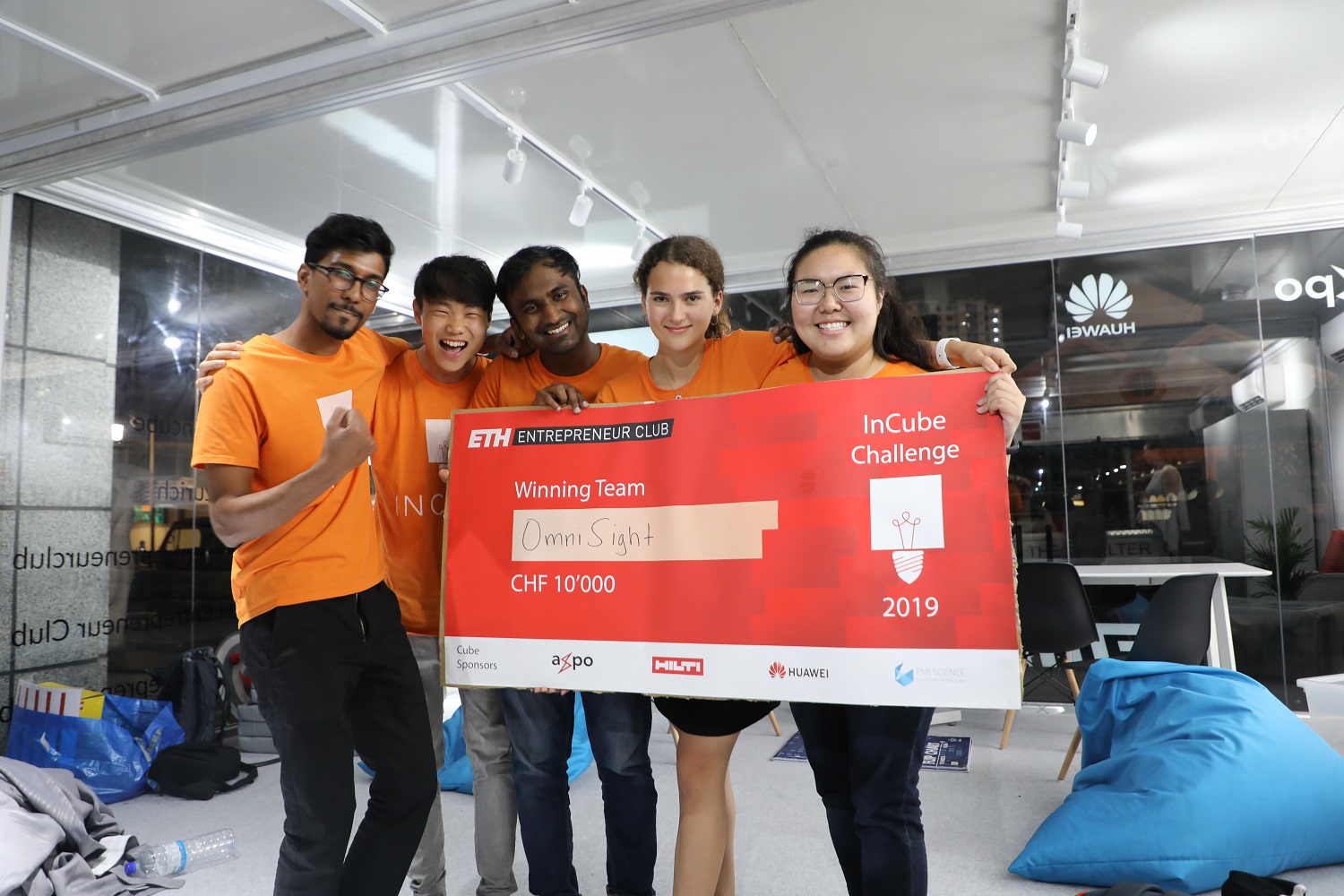
OmniSight: InCube Winner 2019 (photo credit: Entrepreneur Club/ETH Zurich)
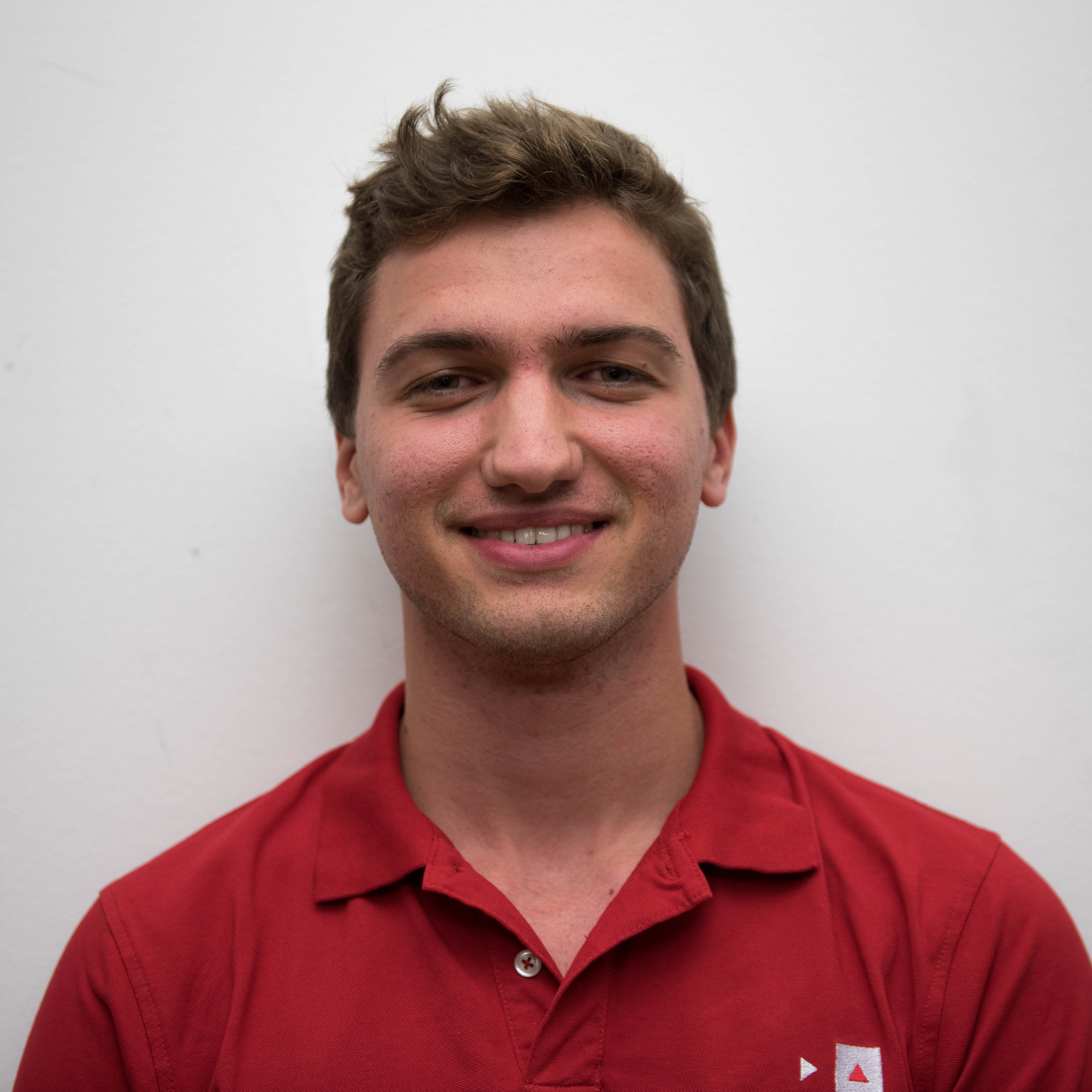
About the author
Christos Gountis is a second year Master’s student in Management, Technology and Economics at ETH Zurich. He joined the ETH Entrepreneur Club a year ago and currently serves as Vice President. His experience as facilitator of the InCube participants in Singapore was very special for him. He is passionate about entrepreneurship, believes in team-spirit and is keen to found his own startup soon.
About the team
Arno Schneuwly is a Member of Technical Staff at Oracle Labs in Zurich and serves as the VP of InCube at ETH Entrepreneur Club.
Charlotte Nicod is a PhD candidate in Systems Biology at ETH Zürich and was part of the InCube Team 2019.
Matteo Guscetti is a Master Student in Data Science at ETH Zurich and was part of the InCube Team 2019.
Sebastian Pinegger is a Master Student in Computer Science at the University of Zurich, a consultant at ipt and was part of the InCube Team 2019.

